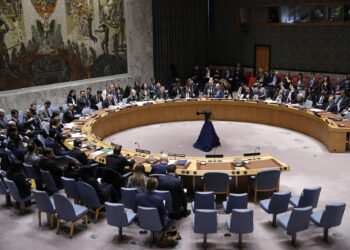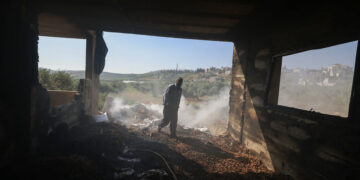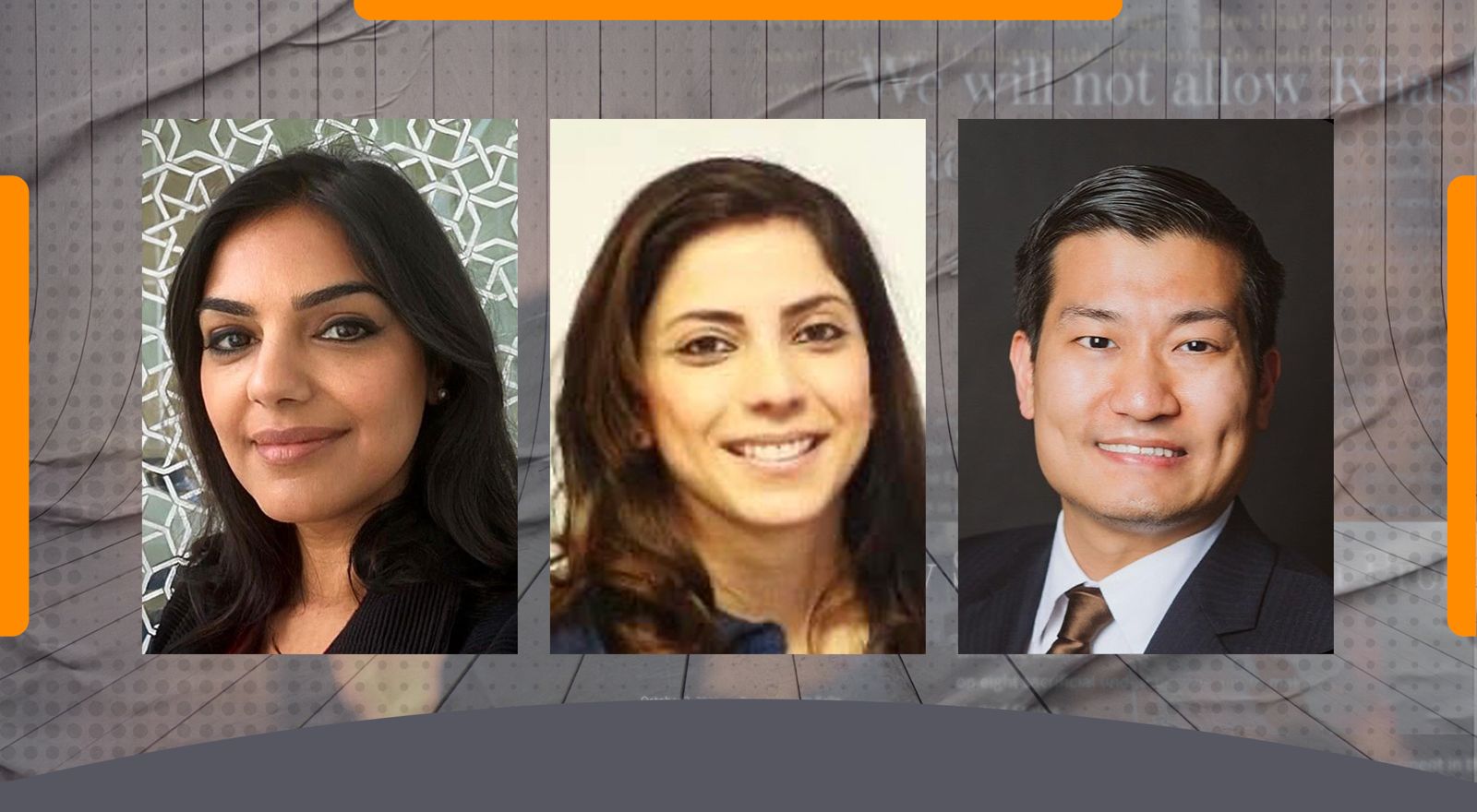Mahmoud Addanou is a Sudanese political analyst and journalist.
عربي
Last month's military coup in Sudan, led by Gen. Abdel Fattah al-Burhan, has once again disrupted the aspirations of the Sudanese people to break their country's long, tortuous cycle of dictatorship. For the past six decades, political life in Sudan has been characterized by short periods of democratic, civilian-led rule, usually ending in a putsch that ushers in another authoritarian regime. Burhan is not the first military officer to overthrow a civilian government in Khartoum. Sudan's modern history abounds with the plots of generals, some of whom managed to seize power and some of whom failed (and others who are no doubt still waiting for their moment). They all justified their coups as taking the side of "the people" and invoked the need to protect the country's security from the "chaos" of democracy and civilian governance. And every time, their followers form a chorus whose anthems whitewash the ugliness of military rule.
Despite the hopes that followed the toppling of Omar al-Bashir's 30-year dictatorship in 2019, Sudan now faces an all-too-familiar obstacle on the path toward democracy. Over its two years in power, Sudan's transitional government, known as the Sovereignty Council and made up of civilian and military representatives, had been plagued by infighting and the country's widespread insecurity and economic deterioration that carried over from the Bashir era. But the generals added more thorns in the government's side, including by slow-rolling economic reforms. Yet despite its shortcomings, this government under Prime Minister Abdalla Hamdok was, until October's coup, the only hope of delivering Sudan from the oppression of military rule—the goals of the popular revolution that brought an end to Bashir's regime and its cult of personality.
After being detained following the coup, Hamdok signed a political agreement with the military last week that released him from house arrest and reinstated him as prime minister. He said he made the deal to "put an end to the bloodshed" in the streets, where protesters have been killed by security forces in Khartoum and other cities, but protesters saw it as a betrayal. The Forces of Freedom and Change, the civilian coalition that had shared power with the military in the Sovereignty Council before the coup, rejected the agreement, along with several major opposition political parties, including the Umma Party and the Sudanese Congress Party.
For the past six decades, political life in Sudan has been characterized by short periods of democratic, civilian-led rule, usually ending in a putsch that ushers in another authoritarian regime.
- Mahmoud Addanou
Burhan's coup has reignited the decades-old popular resistance to military regimes in Sudan. The country declared its independence from Anglo-Egyptian colonial rule in 1955 with a bold democratic act: Members of its first elected parliament simply voted for Sudanese self-rule. Since then, the military has most often acted as a foil to nascent civilian governance, disrupting any progress after Sudan became independent in 1956. The very first independent Sudanese government, led by Prime Minister Ismail al-Azhari, was overthrown by Gen. Ibrahim Abboud in 1958, just two years after its formation—to end what Abboud called "the state of degeneration, chaos and instability of the country." When Abboud was himself overthrown in a coup in 1964, Sudan briefly had a civilian government again—but only until 1969, after which military regimes dominated in Sudan over the course of two long civil wars.
Yet every military despot, no matter how long they ruled, was eventually ousted by an overwhelming popular uprising, such as the revolutions in 1964 against Abboud, in 1985 against Jaafar Nimeiri and in 2019 against Bashir. These were followed by transitional governments that paved the way for a brief return to electoral democracy. Then the pattern would repeat, when a politically adventurous general secretly backed by other political forces came along to interrupt the democratic trajectory.
The Sudanese people had an early experience of democracy at the twilight of British colonization, enjoying a mature parliamentary system and the emergence of political parties in the 1940s. However, some of these parties have themselves been complicit with the military, undermining the very same institutions they are expected to revere and nourish. All military coups in Sudan have had the backing of political parties that pushed and tempted the military to interrupt the pathway to democracy, as well as regional and international powers whose interests would likely be threatened by the emergence of true democratic and civilian governance in Khartoum.
True to form, regional players appeared to help plan and support Burhan's coup. Israel reportedly sent a delegation to Sudan during the coup that included members of Mossad, its intelligence agency, after a Sudanese security delegation secretly visited Israel in October. The Israeli daily Haaretz dubbed Burhan "Israel's man in Sudan" as he advocated for full normalization of relations with Israel last year, a policy not supported by the civilian side of the transitional government or most Sudanese. Burhan also recently appointed Abu al-Qasim al-Burtam, a prominent advocate of normalization with Israel, to the new, post-coup Sovereignty Council.
All military coups in Sudan have had the backing of political parties that pushed the military to interrupt the pathway to democracy, as well as regional and international powers whose interests would be threatened by the emergence of democratic governance in Khartoum.
- Mahmoud Addanou
Sudanese protesters in the streets have held up banners explicitly accusing Egypt and the United Arab Emirates of planning and backing the coup. The details of how Egypt greenlit Burhan's putsch was exposed in reporting last month. Sudanese communities in the diaspora also organized simultaneous protests outside Egyptian and Emirati embassies abroad to express their opposition to the coup and both governments' complicity in supporting Burhan. Even as the Emirati government has since said it welcomes a political settlement in Sudan and has engaged in talks, "it is as though the Emiratis are negotiating on Burhan's behalf, reflecting their significant role in supporting his coup against the civilian government," as Khalil al-Anani observed.
Both Burhan and powerful Lt. Gen. Mohamed Hamdan Dagalo, who is known as Hemeti, have suspiciously strong ties to Egypt and the UAE. Hemeti is the commander of the paramilitary Rapid Support Forces, which have refused to integrate with the regular army. They have acted as mercenaries in Yemen, where they have fought the Houthis on behalf of the UAE and Saudi Arabia. Burhan is said to be a friend of Egyptian President Abdel Fattah al-Sisi, and was reportedly on a secret visit to Egypt just hours before the coup, perhaps seeking his advice and input. The director of Egyptian intelligence, Abbas Kamel, has been shuttling back and forth between Cairo and Khartoum since the coup; he reportedly told Burhan on the eve of the coup, "Hamdok has to go." Over the years, Sudanese and Egyptian armies have coordinated closely, including through their "Guardians of the Nile" joint military exercises.
Although the UAE, along with the United States, Saudi Arabia and Britain, was part of the joint statement last month calling for the restoration of civilian government in Sudan following the coup, it remains the main beneficiary of the persistence of military rule in Khartoum. In addition to benefiting from Sudan's mercenary troops in Yemen, the UAE also welcomes the Sudanese military's policy of normalization with Israel. Egypt, for its part, didn't even label the turmoil in Sudan as a coup, instead issuing a tepid statement calling on the parties in Sudan to practice "restraint."
But Burhan's coup could not have happened without the support of these regional players. His fragile political constituency is comprised of the remnants of Bashir's former regime, as well as a few opportunistic politicians. Just this week, Burhan's newly appointed chief justice reinstated all Bashir-era judges who had been removed from their positions by the transitional government's anti-corruption committee. The new coup regime is currently struggling to withstand overwhelming popular rejection in Sudan and waves of international pressure.
The revolutionary youth still taking to the streets in Sudan are showing unmatched enthusiasm and steadfastness. They are willing to die in defense of democracy should they not be allowed to live in it. They believe democratic government is the only way to unite Sudan, politically and economically, and will not give up defending it despite the machine of oppression unleashed by Burhan since the eruption of peaceful protests against his coup. Hopes remain high that these young people will manage to put Sudan back on the thorny path to democracy, and that a civilian government can complete its transitional mission and pave the way for more free and fair elections.






































